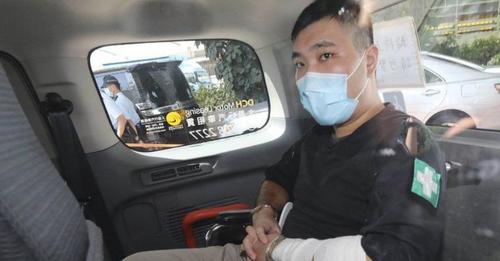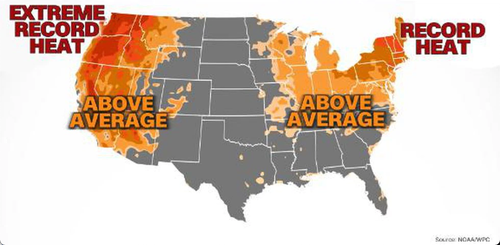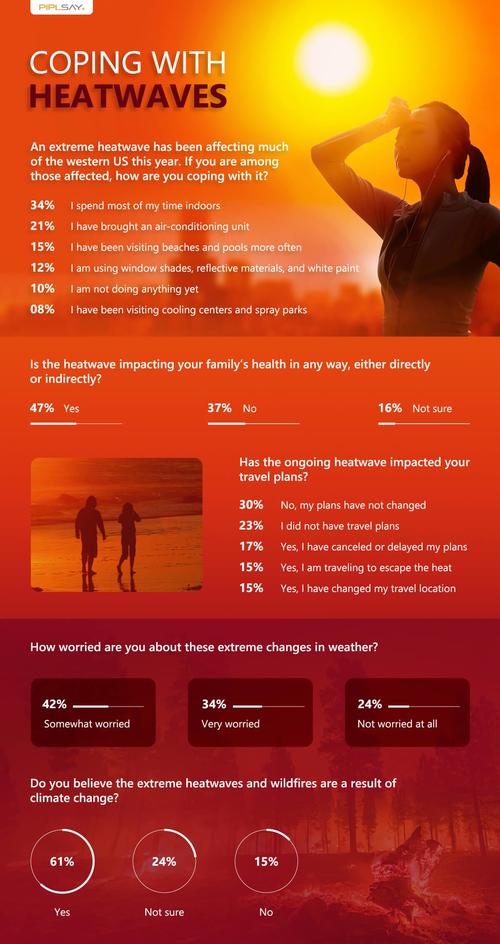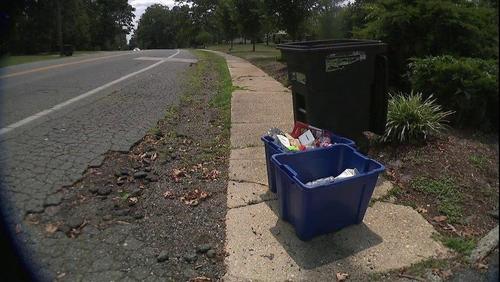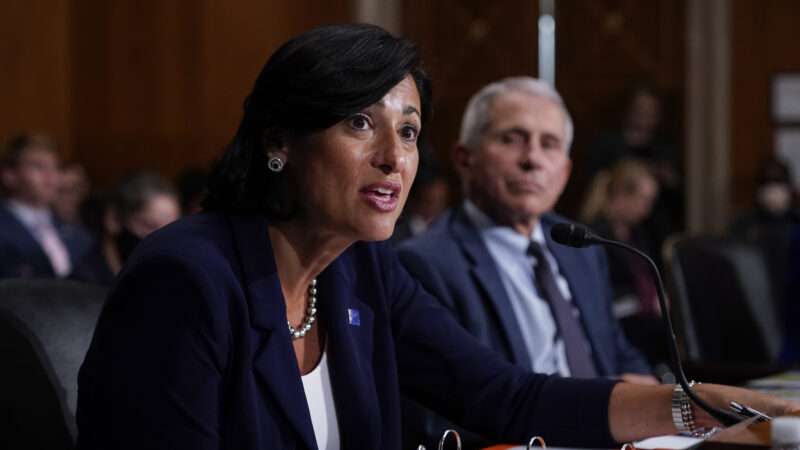Three-quarters of 469 Massachusetts residents infected during a COVID-19 outbreak in Provincetown earlier this month were fully vaccinated, according to a report published today by the Centers for Disease Control and Prevention (CDC). Nine out of 10 cases involved the especially contagious delta variant of the coronavirus, and the CDC reports that it found “similarly high SARS-CoV-2 viral loads in vaccinated and unvaccinated people,” which it says “raised concern that, unlike with other variants, vaccinated people infected with Delta can transmit the virus.”
The outbreak in Provincetown, Cape Cod’s most popular destination, is Exhibit 1 in the CDC’s case for recommending that vaccinated people resume wearing face masks in public places. The study, which was published in the agency’s Morbidity and Mortality Weekly Report, illustrates a point that CDC Director Rochelle Walensky has been emphasizing recently: COVID-19 vaccines do not provide complete protection against infection, especially when people are exposed to the delta variant, which accounts for the vast majority of recently identified cases in the United States. The CDC’s findings also suggest that vaccinated people infected by the delta variant may transmit it to others, although so far the evidence on that point is inconclusive.
The possibility of so-called breakthrough infections has been well-recognized since COVID-19 vaccines were first tested, and data from England, Scotland, and Israel suggest that risk may be higher with delta than with earlier variants. But the evidence indicates that the vaccines are still very effective at preventing COVID-19 hospitalizations and deaths, and it is important to keep the risk of less serious infections in perspective. Walensky has not been doing a very good job of that, as illustrated by her comments during a CNN interview on Wednesday.
“Every 20 vaccinated people, one or two of them could get a breakthrough infection,” Walensky told CNN’s John Berman. That statement, which implies that 5 to 10 percent of vaccinated people will catch COVID-19, grossly exaggerates the odds of a breakthrough infection. Walensky seems to have misconstrued the meaning of the effectiveness rates reported in vaccine studies, which is a pretty serious mistake for the head of the CDC to make.
When a vaccine is described as 90 percent effective against infection, that does not mean 10 percent of vaccinated subjects were infected. Rather, it means the risk of infection among vaccinated people was 90 percent lower than the risk among unvaccinated people. As the CDC noted on Tuesday, when it issued its revised mask guidance, post-approval studies of COVID-19 vaccines typically have found that they reduce the risk of infection by 86 percent to 99 percent. That means the odds of a breakthrough infection were much lower than Walensky suggested on CNN.
In one U.S. study of adults who had received the Pfizer or Moderna vaccines, for example, the incidence of positive COVID-19 tests among fully vaccinated subjects was 0.048 per 1,000 person-days, compared to 0.43 per 1,000 person-days among the unvaccinated controls, yielding an effectiveness rate of 89 percent. A study of U.S. health care workers put the incidence of infection at 1.38 per 1,000 person-days when the subjects were unvaccinated, compared to 0.04 per 1,000 person-days when they were fully vaccinated, yielding an effectiveness rate of 97 percent. In both cases, the risk of a breakthrough infection was at least an order of magnitude lower than the 5-to-10-percent estimate that Walensky offered.
That is also true in studies that suggest vaccines are less effective at preventing infection by the delta variant. The CDC notes a recent population survey in England that found full vaccination reduced the chance of infection by 72 percent, notably lower than the effectiveness rates in studies involving earlier variants. But even in that study, just 0.07 percent of fully vaccinated people tested positive for COVID-19, compared to 0.24 percent of unvaccinated people.
In the United States, breakthrough infections still seem to be rare, notwithstanding the delta variant, as the CDC acknowledges. “The 125,682 ‘breakthrough’ cases in 38 states found by NBC News represent less than .08 percent of the 164.2 million-plus people who have been fully vaccinated since January, or about one in every 1,300,” CNBC reports. CNBC notes that “the total number of breakthrough cases is likely higher,” since “nine states, including Pennsylvania and Missouri, did not provide any information” and “vaccinated adults who have breakthrough cases but show no symptoms could be missing from the data altogether.” But even if the true number is two or three times as high, it would still not be remotely consistent with Walensky’s risk estimate.
CNBC also quotes Erin McHenry, a spokesperson for the Minnesota Department of Health. “Our most recent data shows that 99.9 percent of Minnesotans who are fully vaccinated have not contracted the virus,” she says.
Last spring, the misconception that seems to underlie Walensky’s risk estimate generated an erroneous CNN story that claimed vaccinated air travelers face a 10 percent risk of infection. Confusion about vaccine effectiveness rates continues to show up in press coverage of COVID-19. Yesterday NPR quoted Kathleen Neuzil, director of the Center for Vaccine Development and Global Health at the University of Maryland, as saying that “even with a 95% efficacious vaccine, you will have one in 20 vaccinees who are exposed get the disease.”
I emailed Neuzil about that statement, which is similar to what Walensky said on CNN. “I was actually misquoted on that one,” Neuzil said, “and you are the first one to pick up on it (or at least reach out to me about it!). Sometimes in simplifying we don’t get the message right. The bottom line is that vaccine isn’t 100% protective, and even at high levels of protection we will have breakthrough.”
That bottom line is certainly correct. But in warning people about that possibility, public health officials like Walensky should not distort the underlying science by saying the risk is much bigger than the evidence indicates. This episode is reminiscent of Walensky’s hyperbole about the risk of outdoor COVID-19 transmission, which misrepresented the study she cited in several significant ways.
What about the risk that a breakthrough infection will spread the virus to others? The CDC attributes the Provincetown outbreak, which occurred from July 3 through July 17, to “densely packed indoor and outdoor events that included bars, restaurants, guest houses and rental homes.” The Washington Post reports that “at least five events sparked the outbreak, so it is not possible to blame it on one party or one bar.” Nor is it yet clear how many of the infections were acquired from vaccinated carriers. The Post says researchers “are analyzing the genetic fingerprints of the virus samples” to “trace chains of transmission and determine how commonly fully vaccinated people were infecting one another.”
While the CDC’s press release says “high viral loads” in nasal samples from vaccinated people infected in Provincetown “suggest an increased risk of transmission,” the study itself is more circumspect. “Cycle threshold values [in RT-PCR tests] were similar among specimens from patients who were fully vaccinated and those who were not,” the authors say. But they caution that “Ct values obtained with SARS-CoV-2 qualitative RT-PCR diagnostic tests might provide a crude correlation to the amount of virus present in a sample and can also be affected by factors other than viral load.” And even if the viral loads in nasal samples from vaccinated and unvaccinated people were indeed similar, it’s not clear whether that means the two groups were equally likely to transmit the virus.
An Israeli study of 1,497 fully vaccinated health care workers, reported this week in The New England Journal of Medicine, identified 39 breakthrough infections, the vast majority of which were mild or asymptomatic. Three-quarters of those subjects “had a high viral load…at some point during their infection.” Yet “no secondary infections were documented.”
The CDC’s Provincetown study also warns that “data from this report are insufficient to draw conclusions about the effectiveness of COVID-19 vaccines against SARS-CoV-2, including the Delta variant, during this outbreak.” About 69 percent of eligible Massachusetts residents had been vaccinated at the time of the Provincetown outbreak, one of the highest rates in the country. “As population-level vaccination coverage increases,” the study notes, “vaccinated persons are likely to represent a larger proportion of COVID-19 cases.”
The authors nevertheless suggest that “jurisdictions might consider expanded prevention strategies, including universal masking in indoor public settings, particularly for large public gatherings that include travelers from many areas with differing levels of SARS-CoV-2 transmission.” That recommendation goes beyond the guidance that the CDC issued on Tuesday, which was limited to “areas of substantial or high transmission,” a category that did not include Provincetown prior to the outbreak.
In her CNN interview, Walensky conceded that “the vast majority” of COVID-19 transmission “is coming from unvaccinated people.” She noted that 80 percent of counties with high transmission have vaccination rates below 40 percent. But she added that “we wanted people who are vaccinated to understand that they could potentially pass this virus if they were one of those breakthrough infections.”
That danger represents the combination of two probabilities: the probability that a vaccinated person will be infected, which is much lower than the odds that an unvaccinated person will be infected and much, much lower than Walensky implied, and the probability that an unvaccinated person who is infected will transmit the virus. The CDC’s Provincetown study may ultimately shed light on the latter issue. But at this point, we still don’t know how many of those cases (if any) can be traced to vaccinated carriers.
“Predominantly,” CNN’s Berman noted, “this is something coming from unvaccinated people to unvaccinated people.” Walensky agreed. “So then you can understand the frustration in those of us who are vaccinated,” Berman said. “[We are] saying, ‘Why the hell do I have to pay the price for this?'” Here is where Walensky claimed that vaccinated people have a one or two in 20 chance of being infected, which is not remotely true and can only further undermine confidence in the vaccines she is urging everyone to get.

from Latest – Reason.com https://ift.tt/3C30fBQ
via IFTTT

